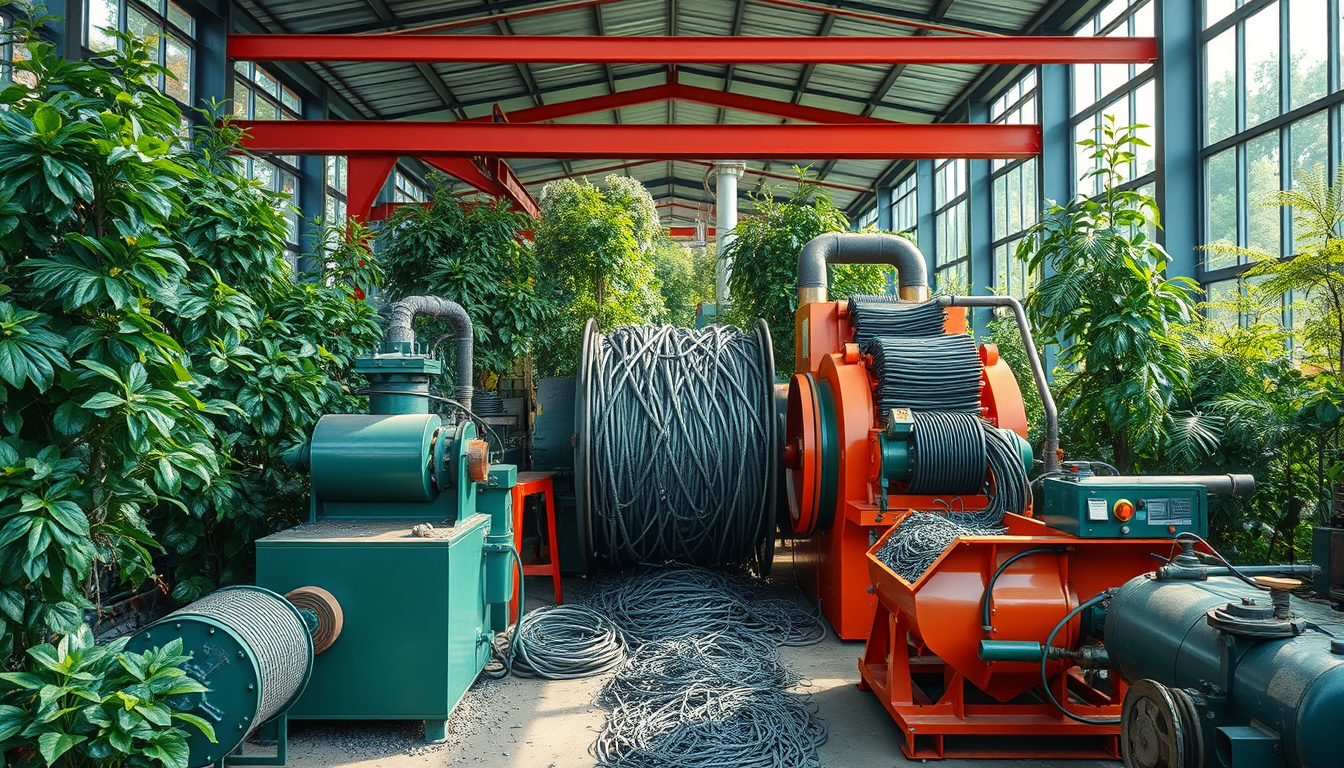In today’s world, where environmental concerns are at the forefront, understanding and practicing effective metal recycling is more important than ever. Metal recycling plays a crucial role in reducing the exploitation of natural resources, saving energy, and decreasing landfill waste. Whether you’re a homeowner, a business owner, or simply someone who wants to make eco-conscious choices, mastering the essentials of metal recycling can significantly impact the health of our planet. This guide will explore essential tips for environmentally friendly practices in metal recycling, helping you make more sustainable decisions.
Why Metal Recycling is Vital for Our Environment
Metal recycling is the process of recovering scrap metal from waste products and reshaping it into new, usable materials. Unlike other materials, metals can be recycled multiple times without losing their quality, making them highly sustainable. The importance of metal recycling lies in several key benefits:
- Conservation of Natural Resources: Recycling metals reduces the need for mining and extraction of raw ore, which can be damaging to ecosystems.
- Energy Savings: Producing metal from recycled scrap typically consumes significantly less energy compared to mining and refining virgin materials.
- Reduction of Landfill Waste: Disposing of metal waste contributes to landfills; recycling alleviates this burden.
- Lower Carbon Footprint: Overall, metal recycling reduces greenhouse gas emissions associated with production and waste.
Understanding Different Types of Metals and Recycling Practices
Before diving into tips, it’s valuable to recognize common types of metals and how they are recycled:
- Ferrous Metals: Includes iron and steel. Commonly found in appliances, cars, and construction materials.
- Non-Ferrous Metals: Includes aluminum, copper, brass, and zinc. Found in wiring, electronics, and decorative items.
Each type of metal has specific recycling processes, but general best practices apply across the board.
Essential Tips for Environmentally Friendly Metal Recycling
1. Properly Sort Your Metal Waste
Sorting metals correctly is crucial for efficient recycling. Mixes of different metals complicate the recycling process and can lead to lower-quality final products.
Tips for sorting:
- Designate bins for ferrous and non-ferrous metals.
- Remove non-metallic contaminants like plastics, rubber, and dirt.
- Identify scrap metal by visual inspection or consult local recycling facilities for guidance.

2. Clean Your Metals Before Recycling
Contaminants such as paint, oil, or other residues can hinder the recycling process. Proper cleaning ensures that your metal scrap is recycled efficiently.
Cleaning methods:
- Rinse parts with water for lightweight contaminants.
- Use a mild detergent for greasy or oily residues.
- Avoid using abrasive materials that can damage the metal surface.
3. Avoid Mixing Non-Recyclable Materials
Plastic wraps, electrical components, or other non-metal items attached to scrap metals should be removed. This prevents contamination and ensures the metal is appropriately processed.
4. Reuse or Repurpose Metals When Possible
Before recycling, consider reusing or repurposing metals for DIY projects or repairs. This reduces waste and extends the lifespan of metal products, further supporting environmentally friendly practices.
5. Choose Certified Recycling Facilities
Not all recycling centers operate with the same environmental standards. Use facilities that are certified or accredited, ensuring your metals are recycled responsibly, and environmental regulations are followed.
6. Educate Yourself and Others
Knowledge empowers sustainable choices. Stay informed about local recycling regulations and educate friends and family on proper metal recycling practices.
7. Support Recycling Initiatives and Policies
Participate in community recycling programs or advocate for policies that promote sustainable metal recycling practices. Collective effort enhances environmental benefits.
List of Steps for Effective Metal Recycling:
- Collect and sort metals at home or work
- Clean metals to remove contaminants
- Remove non-metal parts and materials
- Find certified recycling facilities
- Drop off or arrange pickup of recyclable metals
- Promote awareness about metal recycling in your community
The Impact of Small Actions
Even small contributions toward proper metal recycling can cumulatively make a massive difference. For instance, recycling just 1 ton of aluminum scrap can save approximately 8 tons of bauxite ore and 4,000 kilowatt-hours of energy (source). Your effort helps conserve resources, reduces pollution, and fosters a sustainable future.
Frequently Asked Questions (FAQs)
Q1: How does metal recycling help the environment?
Metal recycling reduces the need for raw metal extraction, conserves natural resources, saves energy, and lowers greenhouse gas emissions, all of which benefit the environment.
Q2: What types of metals are most recyclable?
Most metals are recyclable, but aluminum, copper, steel, and brass are some of the most commonly recycled metals due to their high demand and value.
Q3: How can I identify recyclable metals at home?
Look for common items like aluminum cans, steel appliances, copper pipes, and scrap metal tools. Consult local recycling guides if unsure.
External Source:**
For more insights on the importance of recycling and sustainability, visit EPA’s Recycling Basics.
Conclusion: Take Action for a Greener Future
Embracing environmentally friendly practices in metal recycling is a simple yet powerful way to contribute to a sustainable future. By properly sorting, cleaning, and supporting responsible recycling facilities, you help conserve natural resources, reduce pollution, and minimize waste. Whether at home or in your community, your commitment to effective metal recycling makes a tangible difference. Start today—your planet will thank you!
Junk Guys Orange County
Phone: 949-629-4960
Website: www.junkguysoc.com
Email: junkguysoc@gmail.com
